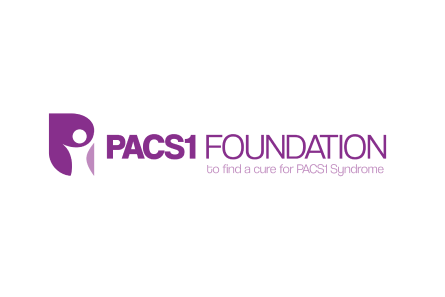PACS1 Syndrome Research Foundation
Cycle 2
PACS1 Syndrome (also known as Schuurs-Hoeijmakers Syndrome) is a rare neuro-genetic disorder caused by a mutation of the PACS1 gene. All children with PACS1 Syndrome have the same exact change in the PACS1 gene making it a unique and more easily curable disease. People with PACS1 Syndrome have intellectual disabilities, global developmental delays, epilepsy, autism, and significant language impairments.
Last updated 04/30/2025
Clinical
Disease Class
Genetic diseases
Neurological diseases
Body Systems
Cardiovascular / Circulatory
Digestive
Endocrine
Metabolic
Muscular / Skeletal
Nervous / Sensory
Renal / Urinary / Excretory
Reproductive
Organs
Brain
Ears
Esophagus
Eyes
Heart
Kidneys
Mouth / teeth
Muscles
Nose
Stomach
Testes
Known Genetic Link
Yes, one or more genes directly cause the condition
causative_genes
PACS1
contributory_genes
PACS1
Type of Inheritance
De novo
Newborn Screening
No
Disease Mechanism(s)
Pathogenic mutation
Age of Onset
Infancy (age 0-1)
Prebirth
Average Age at Diagnosis
Middle childhood (6-11)
Life Expectancy
Adulthood (age 18-64)
Affected Sex(es)
Female
Male
National Prevalence
51-100
Global Prevalence
101-1000
National Incidence
Less than 10
Global Incidence
Less than 10
Symptoms / Phenotypes
attention disorders / ADHD
autism
autistic behavior
behavioral changes
cardiac abnormalities
cryptorchidism
developmental delay
distinctive facial features
feeding difficulties
gait abnormalities / gait disturbance
gastroesophageal reflux
hypotonia
intellectual disability
obsessive compulsive disorder (OCD)
seizures / epilepsy
speech delay
speech problems / apraxia
Biomarkers
None
Existing Therapies
None
Organizational & Research
Cell Lines
Fibroblasts
iPSCs
Cell Lines, Institution
Coriell Institute
Simons Searchlight
Cell Lines, Involvement
Consulted
Funded
Cell Lines, share
All our cell lines are freely available
Disease Model
C. elegans
Mouse
Organoids
Disease Model, Involvement
Consulted
Funded
Disease Model, share
Some of our disease models are freely available
Clinical Trial Role
Not involved
Biobank, Institution
Coriell Institute
WiCell Research Institute
Biobank, Involvement
Consulted
Center of Excellence, Institution
None
Registry
No, we do not have a registry, but we plan to create one
Natural History Study
No, we do not have a natural history study, but we plan to create or collaborate on one
FDA Patient Listening Session
No
FDA Patient-Focused Drug Development (PFDD) Program
No
ICD Codes
No, we do not have any ICD codes
Diagnostic Guidelines
No
Science Advisory Board Policies
No policies
Research Network Policies
Has CRN but no policies
Research Roadmap
We don't have a Research Roadmap
International Chapters
None
International Partners
Europe
